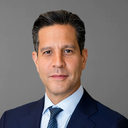Posted underRhinoplasty q&a
zairaluevanosMay 1, 2016
Answers (12)
From board-certified doctors and trusted medical professionals
Dr. Kenneth Hughes, MD

KM
Dr. Kenneth Hughes, MD
Board Certified Plastic Surgeon
Answer
Dr. Adam Bryce Weinfeld, MD

AM
Dr. Adam Bryce Weinfeld, MD
Board Certified Plastic Surgeon
Answer
Dr. Stefan Mark Szczerba, MD

SM
Dr. Stefan Mark Szczerba, MD
Board Certified Plastic Surgeon
Answer
Dr. Kenneth Yu, MD

KM
Dr. Kenneth Yu, MD
Board Certified Facial Plastic Surgeon
Answer
Dr. Dario Rochira, MD
DM
Dr. Dario Rochira, MD
Specialist Registered Plastic Surgeon
Answer
Dr. William Portuese, MD
WM
Dr. William Portuese, MD
Board Certified Facial Plastic Surgeon
Answer
Dr. Leon Goldstein, MD
LM
Dr. Leon Goldstein, MD
Board Certified Plastic Surgeon
Answer
Dr. Myriam Loyo, MD
MM
Dr. Myriam Loyo, MD
Board Certified Facial Plastic Surgeon
Answer
More Rhinoplasty Questions
See all Rhinoplasty Q&A
WE SEND PRETTY
EMAILS
What’s trending? Who’s turning heads? Which TikTok myths need busting? We’ve got you. No fluff, no gatekeeping—just real talk. Get our free, unfiltered newsletter.






